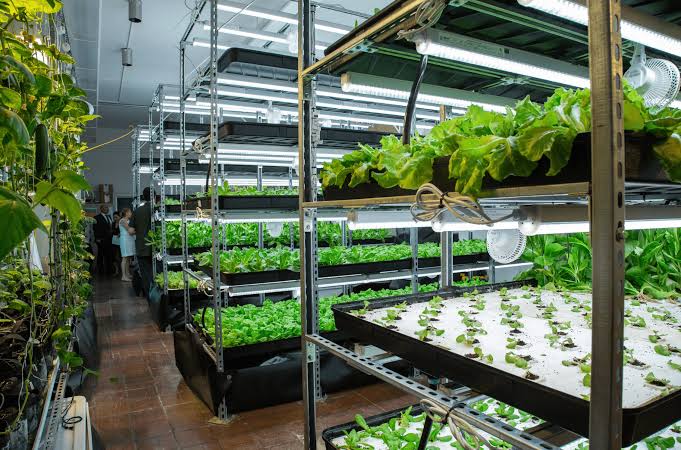The Ministry of Environment, Water and Agriculture (MEWA) in Saudi Arabia launched an urban vertical farm project for food markets and stores, the initiative, the first of its kind in the region, allows customers to obtain fresh food products grown in the country.
The ministry’s undersecretary, Ahmed Al-Eyada, attended the launch of the project, which was implemented by a leading bioagriculture company.
MEWA aims to launch about 600 to 1,000 farms in the retail system across all markets in the country over the next five years. These farms are intended to meet 20 to 40 percent of domestic demand for agricultural products and vegetables.
Danube markets in Riyadh is hosting the first vertical farm in the project. Commercial display units in the market contain a variety of plants and agricultural products, such as lettuce, coriander, parsley and broccoli — many of which were previously sourced from abroad.
Vertical urban farms in stores aim to preserve natural resources, maintain ecosystem balance and promote sustainable productivity. By shortening supply chains, they also reduce loss and waste, and introduce a new farming model suited to local farmers and businesses in the country.
The initiative offers multiple benefits for consumers by providing high-quality vegetables and fruits that retain their freshness and nutritional value for up to five times longer than traditional methods.
Urban farms also promote job localization and greater income potential. Furthermore, they help overcome logistical challenges associated with transporting agricultural products to consumers.
Vertical farming not only conserves agricultural land but also reduces labor and water usage by 80 to 90 percent compared to traditional farming, providing a year-round high-yield agricultural environment.

